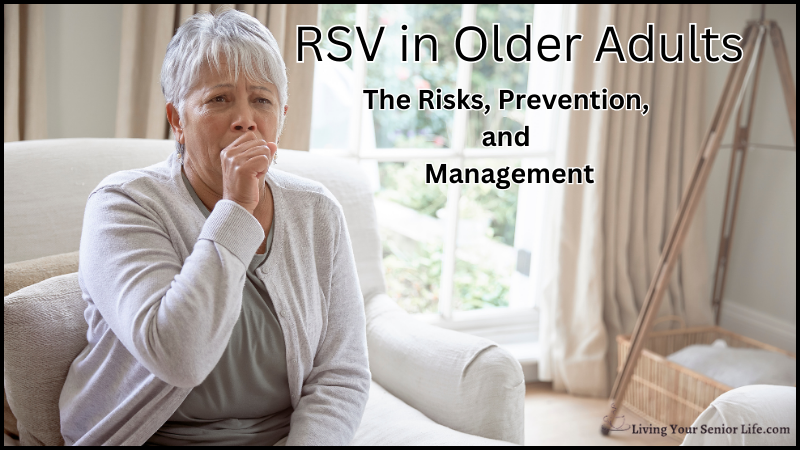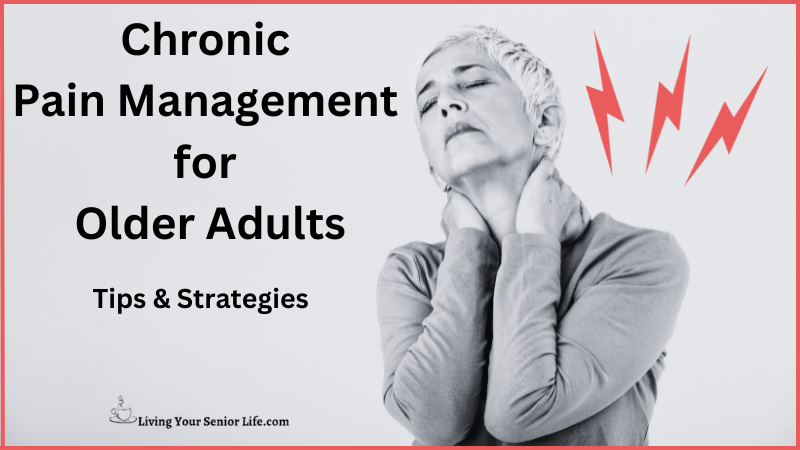LivingYourSeniorLife is supported by its audience. When you purchase through links on our site, we may earn a small affiliate commission at no cost to you. Learn more.
In What Is Forgetfulness? What’d I Just Say, you’ll explore some causes of forgetfulness and the use of memory enhancements. Also, you’ll discover what distinguishes forgetfulness from dementia & Alzheimer’s.
What is forgetfulness? Where did I put my keys? Where did I put my phone? Who was I supposed to call? Why did I come into this room? Everyone seems to experience this type of forgetfulness from time to time. It is quite common and can be brought on for several reasons. Simply put, forgetfulness is the absence of memory retrieval.
Forgetfulness: Understanding Memory Lapses
- What is forgetfulness? Forgetfulness refers to the inability to remember information. It can manifest as lapses in memory, thinking, or attention. Common signs include trouble remembering details, feeling disoriented, and experiencing brain fog.
- Is forgetfulness normal with aging? Yes, forgetfulness tends to increase as we age. Normal age-related forgetfulness includes occasionally forgetting where you left common objects or needing lists more often to remember tasks.
- When should I seek help for memory problems? While some memory changes are normal, persistent or severe memory problems warrant attention. Signs include asking the same questions repeatedly, mixing up words, and getting lost in familiar areas.
- What causes forgetfulness? Forgetfulness may result from aging-related changes, lifestyle factors, medical conditions, medication side effects, or deficiencies in vitamins and minerals.
Remember that professional evaluation is essential if you have concerns about your memory.
Video: What Is Forgetfulness
How Dare You -I Am Not Forgetful – Wait, Who Was I Supposed to Call?
Have you heard this joke…
Three ladies were discussing the difficulties of getting older.
One said, “Sometimes while standing at the kitchen counter, I catch myself with a jar of mayonnaise in my hand, and I can’t remember whether I need to put it away or start making a sandwich.”
The second lady joined in with, “Yes, sometimes I find myself on the landing of the stairs and can’t remember whether I was on my way up or on my way down.”
The third one responded, “Well ladies, I’m glad I don’t have that problem, knock on wood, as she rapped her knuckles on the table, and then said, “That must be someone at the door, I’ll get it!”
Yes, we can, and do, laugh at being forgetful, but it can also get us wondering why we are experiencing it.
Causes of Forgetfulness
People who experience forgetfulness might find they can still remember their address of their childhood home, what schools they attended, or a memory of a road trip taken years ago. At the same time, they may not remember what they were looking for when they walked into a room or try to think of a particular word or name.
Many times this is just a part of the aging process or perhaps something in our lifestyle that can be a contributing factor, such as:
Medications
Many medications can lead to forgetfulness. I’ve listed some of the more common ones below, but other medications can have this effect as well.
- Benzodiazepines – prescribed many times for insomnia and anxiety.
- Antidepressants
- Statins – used for lowering cholesterol
- Pain Medications
- Beta-blockers – commonly used for hypertension (high blood pressure)
- Antihistamines – widely used for allergies or the common cold.
- Drugs used for incontinence and overactive bladder.
- Drugs used for insomnia or sleep disorders.
The best thing to do if you are experiencing forgetfulness or memory problems is to talk to your doctor about any medications you are taking. Many times there is an alternative medication you can take.
However, don’t stop taking any prescription medication without first consulting with your doctor. Coming off medication unsupervised can lead to serious side effects and may even cause death.
True Story
A side story here on how I experienced forgetfulness while taking medication – When I had surgery, my doctor prescribed Percocet (a pain reliever). I took my pills, and then I forgot, of course, after swallowing, if I had already taken another dose previously? I usually wrote it down, but this time I didn’t.
I was alone, and what if I took the pill? Would taking another cause any dangerous side effects?
I called poison control because I literally did not have a memory if I had taken one or two pills. What an amazing representative I talked to there. We went over the pills I might have taken, and by pure luck, it was okay if I did take two because the dose was low enough; however, they did call me back a couple of hours later to be sure I was responsive.
Stress/Anxiety
Stress and anxiety can wreak havoc on the body. When you are under stress or anxiety, your brain becomes overstimulated, and you may become distracted, which in turn can make remembering difficult.
Dehydration
You’ve probably heard this before – water is essential for your body to function correctly.
It’s true – forgetfulness is part of this. The solution is to be sure you are drinking enough water. And though coffee and tea might count toward water consumption, they also contain caffeine, which can cause dehydration.
Because of this, it’s best to drink plain water. The recommendation is usually 6-8 glasses a day, but you may need more if you’re active or spend a lot of time in the sun.
Diet
Everyone has heard that food is fuel for the brain – well, maybe not everyone has, but it is true. If you’re not eating healthy foods, it could be interfering with memory.
- Vitamin D Deficiency
Vitamin D is naturally derived from sunlight and is found in some foods such as fatty fish and fortified milk and orange juice. Though Vitamin D seems to be in abundance, many people are deficient in it.
Recently I was diagnosed with Vitamin D deficiency. This surprised me since I live in Arizona, which has sunlight most of the year. The doctor explained that even though we get plenty of sunshine, many of us spend most of the day inside, trying to escape the heat.
Simple blood tests can detect if you are deficient in Vitamin D, and then you can be treated to get your levels up into the normal range.
- Vitamin B-12 Deficiency
As we age, it is more difficult for our bodies to absorb Vitamin B-12 through food. Because of this, doctors will sometimes suggest Vitamin B-12 shots or supplements.
Foods that are high in Vitamin B-12 are:
- Fish and shellfish
- Meats
- Poultry and eggs
- Dairy products
- Fortified cereals
Memory Enhancements

If you are experiencing forgetfulness, there are ways to improve memory. I’ve used quite a few of these methods myself.
Consciously Remember
By consciously remembering, I’m referring to something as simple as watching the garage door close, so you don’t get halfway to work and wonder if you shut it because you don’t remember. Having the visual of watching it close can help you remember.
As you’re leaving the house, make a mental note to leave in the same order each time. For me, I check to be sure my curling iron, etc., is unplugged in the bathroom, and then as I leave my bedroom, I look to see if the ceiling fan is off. I go through the house and do the same visual each time. Then I don’t have to wonder if I remembered to turn the coffee maker off etc.
Consciously remembering may not be 100% foolproof, but it has worked for me most of the time.
Exercise
I know some of us don’t even like the word exercise, but it does do much good for the body. As our world evolved, we have gotten so much more sedentary.
If you can’t get outside to exercise, there are streaming services, and inside exercise equipment you can use. As I’m writing this article, I’ve been looking into getting a treadmill for inside and a bike when the weather is nice out.
If you’re considering purchasing or riding a bike, I wrote an article, “Bicycles and Seniors – I Bet You Haven’t Forgotten How,” that goes over the benefits, safety, and the different types of bikes available. Another article you might want to read is “Senior Exercise Videos“, which reviews and compares five exercise videos/DVDs you can do in your own home. One final article I would recommend if you are looking for exercise equipment is, Best Exercise Equipment for Seniors – Are You Pumped.
Games and Puzzles
- Concentration – Remember this card game where you turn the cards face down and try to pair up matching cards.
- Suduko
- Crossword Puzzles
- Simon
- Pictures with Differences
- Puzzles
- Fidget Blankets
Learning Something New
Is there some hobby or learning experience you’ve always wanted to learn? Take it up to keep your mind active.
Making Lists
I know we think we can remember everything, but with everyday stresses, we can forget.
A list also lets you feel productive as you check off your completed items.
Mnemonics
There are several types of mnemonics, but they are all used to help to remember and memorize.
One type of mnemonics uses the first letter of each item in a list and makes a sentence to remember the list.
Let’s say you’re going to the grocery store and need Cookies, Grapes, Milk, and Bread.
Taking the first letter of each item (c, g, m, b) your mnemonic could be – Charles gets mad when bored.
When you get to the store, your sentence can help you remember what you need (if you forgot your list).
I remember to this day learning to spell “arithmetic” by the mnemonic method:
- A
- rat
- in
- the
- house
- might
- eat
- Tom’s
- ice
- cream
How about remembering the Great Lakes with the word “Homes.”
- Lake Huron
- Lake Ontario
- Lake Michigan
- Lake Erie
- Lake Superior

Reduce Stress
Many people find meditation and drawing/painting helpful in reducing stress. Maybe taking a walk or reading is your stress reducer.
Routine
Having routines can reduce our forgetfulness.
For instance:
Each time you use your keys, have a place where you put them each time you arrive home.
Simple Forgetfulness vs. Dementia vs. Alzheimer’s
Just a short note on the differences between forgetfulness, dementia, and Alzheimer’s disease. Forgetfulness is what we discussed above.
Dementia is a catch-all phrase for many types of disorders that have memory loss.
- Dementia is nonreversible, and you will see a decline in the mental function of someone who has dementia.
- Alzheimer’s disease is a type of dementia.
- In comparison to cognitive health and normal aging, dementia develops sooner or more quickly.
With symptoms of dementia and Alzheimer’s disease, there is a progression in the disease.
- You might see behavioral changes – possibly aggression.
- Memory loss gets more and more prevalent.
- There might be confusion, and it gets harder and harder to carry on an everyday conversation with clarity.
I remember a doctor once explained to me the difference between forgetfulness and Alzheimer’s disease or dementia. He said, “forgetting where you put your car keys is forgetfulness. Forgetting you have a car is something more.”
If you suspect you or someone you know is experiencing something more than simple forgetfulness, a doctor’s visit is needed.
An early diagnosis of mild cognitive impairment, Alzheimer’s disease or another disorder that may affect memory is beneficial because you can begin treatment.
Dementia can usually be diagnosed with mental skills tests – like repeating back a list of words or connecting numbers.
An Alzheimer’s disease diagnosis, at this time, is usually based on observation and ruling out other disorders.
For getting a game plan in place, getting a doctor’s opinion is vital.
FAQs
When should I seek help for memory problems?
Normal age-related memory changes do not significantly affect daily functioning. However, if memory loss disrupts your life, consider seeking medical advice.
Signs that warrant attention include:
Asking the same questions repeatedly.
Mixing up words when speaking.
Taking longer to complete familiar tasks.
Misplacing items in inappropriate places.
Getting lost in familiar areas.
Is forgetfulness a normal part of aging?
Yes, forgetfulness tends to increase as we age. Normal age-related forgetfulness includes:
Occasionally forgetting where you left common objects (like keys or glasses).
Forgetting someone’s name but recalling it later.
Needing lists more often to remember appointments or tasks.
These changes are generally manageable and do not significantly disrupt daily life.
How does aging impact memory?
Aging leads to physical changes in the brain, including:
Deterioration of the hippocampus (involved in forming and retrieving memories).
Declining hormones and proteins that protect brain cells.
Decreased blood flow to the brain.
Loss of gray matter (brain tissue).
These changes can contribute to forgetfulness.
Additional Reading
Now That You Know the Difference You Probably Feel Better
What is forgetfulness? Most of the time, just a phenomenon you experience throughout life. Maybe it’s just more noticeable because we become more aware of it occurring as we age.
There are ways to keep your mind active and enhancements to make remembering easier.
Not all forgetting leads to dementia or Alzheimer’s, but it’s essential to check with your doctor if you or someone you know is experiencing more than just everyday forgetfulness.
Remember that while forgetfulness is common, persistent or severe memory problems should be evaluated by a healthcare provider. If you have concerns about your memory, seek professional guidance for an accurate diagnosis and appropriate care. 😊
I hope in reading What is Forgetfulness? What’d I Just Say?, you gained some information on forgetfulness and its causes as well as some memory enhancements to try.
I would love to hear your stories of forgetfulness and memory. Please comment below.













I didn’t know that there were so much causes to forgetfulness. Interesting that having a daily routine can reduce the chances!
Hi Brooke,
Thank you for stopping by and reading about forgetfulness. I agree that it is interesting how having a daily routine can reduce the chances of forgetfulness. If you know of anyone that is experiencing forgetfulness give that a try and see how it helps. Thank you again.